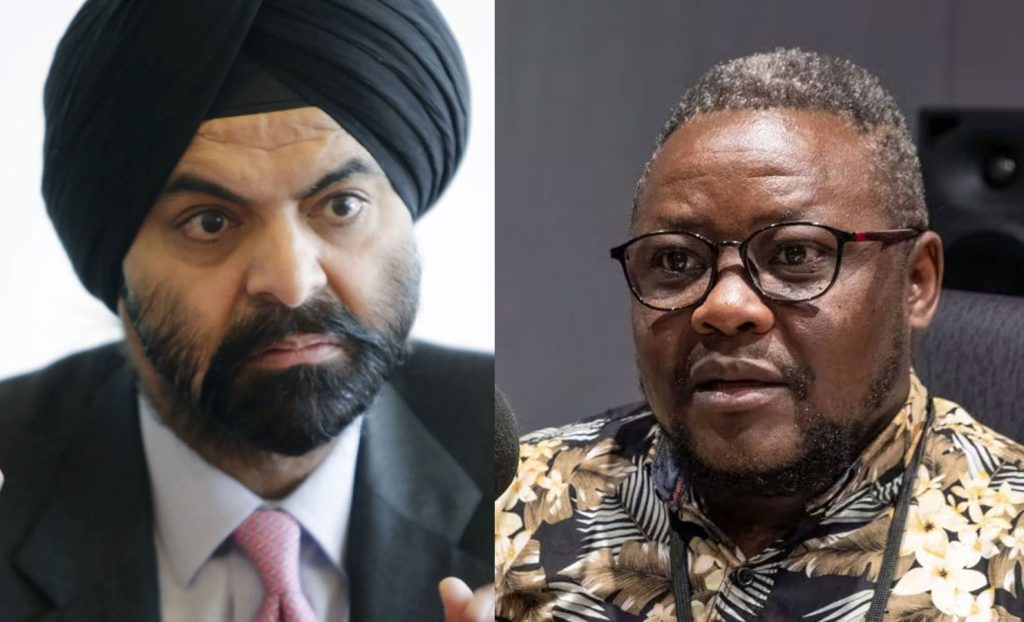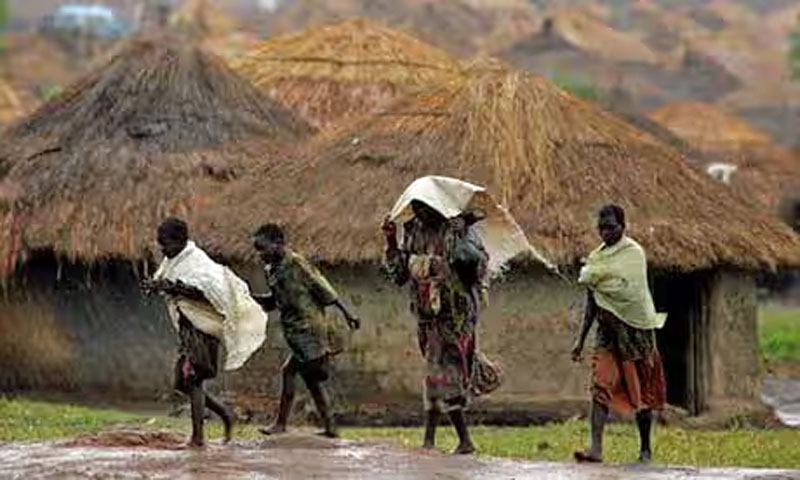World Bank defends decision to resume funding to Uganda
Joto La Jiwe is a Ugandan correspondent for the African…
World Bank says its mitigation measures ensure it won’t discriminate against LGBTQ Ugandans

The World Bank has played down claims that its decision to resume funding to Uganda will negatively impact advocacy for repealing the Anti-Homosexuality Act (AHA) 2023, whose implementation has devastated the lives of more than 1700 people.
The World Bank condemned the AHA in a strongly worded statement in August 2023, in which it affirmed that no new public financing to Uganda would be presented to the Board of Executive Directors until it was convinced that sexual and gender minorities are not subjected to discrimination and exclusion in the projects it funds.
Human rights activists viewed the World Bank funding freeze and the strongest tool to force the Ugandan authorities to drop the AHA, but to the surprise and disappointment of LGBTQI+ rights defenders, the World Bank has decided to resume funding to Uganda while the AHA is still in place and being harshly implemented.
A coalition of Ugandan LGBTQ+ organisations called Convening for Equality (CFE) has warned that the Bank’s decision to resume lending in Uganda sets a dangerous precedent and fails to hold the Ugandan government accountable.
CFE argues that the Bank’s reliance on “mitigation measures” to attempt to avoid direct support for discrimination is “an inadequate and ethically flawed approach” that fails to hold the Ugandan government accountable.
“The World Bank’s move sets a treacherous precedent in which egregious human rights violations, including state-sanctioned persecution and violence against LGBTQ people, are met not with accountability but with tacit World Bank acceptance,” says Clare Byarugaba, co-convener of CFE. “Mitigation measures do not protect us from arrest, harassment, or violence. They simply allow the World Bank to look the other way.”
Frank Mugisha, the Executive Director of Sexual Minorities Uganda (SMUG), says that as long as LGBTQ+ individuals in Uganda remain criminalized and excluded, the mitigation measures will not work.
“Without genuine legal and policy reforms by the Ugandan government, the Bank’s mitigation strategy is a smokescreen. The Bank is effectively saying that inclusion and non-discrimination are negotiable. That should never be the case,” he says.
Pepe Onziema, co-coordinator of CFE’s Strategic Response Team, warned that even if funds are technically earmarked for development, they still bolster the state’s overall capacity.
“It allows the government to allocate domestic resources toward repression while using World Bank funds for development, thereby insulating its broader budget from pressure,” he explained. “As the 2026 elections loom, this is a terrifying reality for all Ugandans.”
The World Bank insists that its management team assessed the efficacy the additional mitigation measures put in place in two initial projects and they were convinced that it was fine to resume lending to the government of Uganda gradually.

The Northern Uganda Social Action Fund (NUSAF4) was the first project to be submitted to the Board of Executive Directors on April 2025.
According to the bank, all 19 projects under implementation will be updated to integrate additional measures to ensure inclusion and non-discrimination of vulnerable and disadvantaged groups and individuals in World Bank-financed projects.
The main mitigation measures include:
- Instructions to all front-line service providers in Bank-financed operations (project staff, contractors, sub-contractors) to ensure inclusion of and non-discrimination of SOGIs (through government circulars, contract clauses, codes of conduct signed by workers).
- Raising awareness of the above requirement to ensure inclusion and non-discrimination among potential beneficiaries, local communities, authorities, and local CSOs.
- Establishing safe and confidential enhanced Grievance Redress Mechanisms to report potential instance of exclusion or discrimination. Establishing a protocol involving the Government of Uganda and World Bank representatives for promptly addressing potential cases of exclusion or discrimination and,
- Establishing an overall monitoring and evaluation approach to help ensure the system to implement mitigation measures is functioning smoothly.
Among the actions taken by the government of Uganda that convinced the World Bank to resume funding was the circulars on inclusion and non-discrimination of vulnerable and disadvantaged individuals and groups since the enactment of the Anti-Homosexuality Act.
The World Bank singles out five circulars it says were issued by the Government of Uganda to ensure inclusion and non-discrimination principles continue on World Bank-financed projects: a Circular on Budget Execution (July 10, 2023); a Circular on Provision of Health Services (June 5, 2023); a Circular on Provision of Education Services (August 18, 2023); a circular issued by the Director of Public Prosecutions (August 29, 2023); and a Circular on the Application of Social Safeguards in Uganda (Sept 21, 2023).
The Circular (obtained by Erasing 76 Crimes and available HERE) on the Application of Social Safeguards in Uganda by Ministry of Finance, Planning and Economic Development (MoFPED) to all ministries, agencies, and local governments notes that implementing mitigation measures on non-discrimination in World Bank-financed operations is of particular importance. It confirms that all World Bank-financed projects should be implemented in accordance with World Bank policies and applicable legal agreements.
The letter states;
▪ No person will be discriminated against or stigmatized, and the principles of nondiscrimination and inclusion will be adhered to. Project benefits should be provided to all project beneficiaries.
▪ All implementing entities of World Bank-financed projects should agree and implement specific mitigation measures to address non-discrimination.
▪ These mitigation measures will require enhancing project grievance redress mechanisms as well as strengthening existing project monitoring by implementing entities including third-party monitoring where applicable.
What else has been done?
According to minutes (obtained by Erasing 76 Crimes and available HERE) from a meeting on mitigation measures to address risks of the Anti-Homosexuality Act in World Bank Group-financed Projects held at Golden Tulip Hotel, Kampala March 28, 2025, the World Bank also considered the following actions in its decision;
- Training, outreach and sensitization of up to 3,284 participants, including contractors/subcontractors, workers, Project Implementation Units staff, Service providers/CSOs, consultancy firms, Grievance Redress Committees, District officials and other stakeholders. World Bank says approximately 2,000 contractors’ workers have also signed the revised codes of conduct.
- A monitoring team of 13 individual Ugandan CSOs and members of the SOGI Community have been hired and trained to be community monitors of the mitigation measures.
- UGANET, a local NGO was contracted to operate the hotline to handle grievances on exclusion and discrimination. The hotline became operational in January 2025.
- A mapping of 124 CSOs working with the SOGI community across the country has been conducted to support referral of cases not related to World-Bank group operations.
With the above and several more measures in place, the World Bank says it is convinced that now is the time to be back in business with the Ugandan authorities.
It says that the Government of Uganda and the World Bank will continue consulting with key stakeholders and the project documents will be revised to integrate concerns and comments received.
The Bank says it is willing to listen to more concerns, but there is no sign that it will turn back on its decision.




